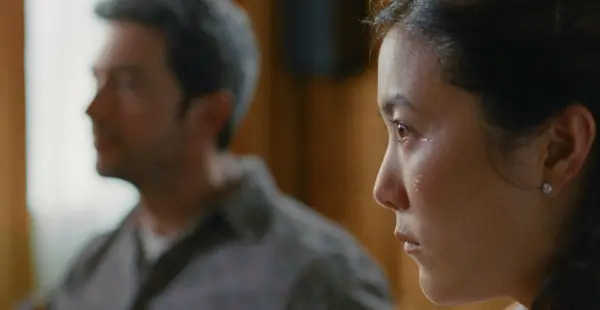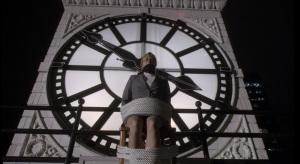
There’s an excerpt from Janice Munemitsu‘s book The Kindness of Color that’s helpful for understanding Japanese-American cultural heritage, and I think it can be applied to Japanese Canadians as well.
Japanese immigrants who are first-generation American residents are known as “Issei.” They typically spoke little English and maintained Japanese as their primary language. The second generation are called “Nisei” and were born in the States with American citizenship; they became the language and cultural bridge, speaking Japanese to their parents and English everywhere else.
Their children are the third generation, “Sansei,” also born in the States and speaking mostly English with little or no Japanese. By the fourth generation, “Yonsei,” they are most likely integrated into the American lifestyle and sometimes have very little knowledge of their Japanese heritage…
I only have anecdotal evidence, but it seems like the Japanese married across cultures more than almost any other Asian immigrants. Whether it’s true or not, there is this sense of wanting to be perceived as more Western in the wake of the incarceration of the Japanese during World War II.
This is a long preamble, but it does supply a bit more context to understand the story at the core of Japanese-Canadian filmmaker, Meredith Hama-Brown‘s debut feature.
It might not be a revelation, but images are powerful. Seagrass opens with images that reflect aspects of my younger self. Two mixed sisters Stephanie (Nyha Huang Breitkreuz) and Emmy (Remy Marthaller) embody childlike wonderment and joy with zero strings attached. They probably haven’t seen Titanic before, and yet they unwittingly reenact it together. These girls are forever present in the moment and inseparable.
After their initial introduction, we contrast the girls with their parents, Judith (Ally Maki) and Steve (Luke Roberts). They have agreed to attend couples therapy to improve their relationship while the girls participate in outdoor activities on the island. We witness their parental love early on: Mom gets in bed with her kids to read Alice in Wonderland and later the girls put on a fanciful dance routine for their audience of two. By comparison, meals at the dinner table together are quiet and awkward.
One of the other couples at the retreat is also in an interracial marriage, and they have made the trip multiple times before. Pat (Chris Pang) and Carol (Sarah Gadon) feel like foils for our leads — perfect people for Judith and Steve to project their insecurities onto.
They’re well off, don’t have any kids, and seem adjusted and in touch with their emotions. Everything Judith and Steve are not. It’s no coincidence that more than once the camera catches them through the window of the cabin next door, and there’s a sense of longing — marriage is always greener on the other side.
Pat asks Judith in Japanese if she speaks; she gets flustered and after he explains in English, she says she doesn’t remember it anymore. Using Munemitsu‘s helpful rubric, Judith is probably “Sansei,” and that would make her children “Yonsei” — like this writer. It’s only a passing interaction but you can sense the chafing shame inside of her.
A Ghost Story?
There’s an inherent naturalism to the backdrop of British Columbia with space and a pace for us to consider and ruminate over what’s being put in front of us. Take a scene with a tropical rainstorm that has time and bravery to show an earthworm crawling across the pavement. This observation seems superfluous, and yet it’s present because it does have worth.
The movie shares some passing similarities with Alexander Payne‘s The Descendants, albeit with different depths to mine thanks to our multifaceted characters. It seems to be the case that when you go somewhere — even a remote island to get away — it brings you more in contact with your fears and pressure points. Like the proverbial Jonah, it’s impossible to run away; your baggage just gets brought to the surface and manifested in new ways.
source: Game Theory Films
Seagrass intermittently takes on the perturbing POV of a horror movie like The Shining, excavating this idea of a little girl frightened of ghosts. But it’s made more concrete by her assumption that it might be her deceased grandma, and of course, this is a very real void in her mother’s life. This same disconcerting perspective comes back later in the film as Emmy feels distressed by being left alone in their cabin by her big sister.
I have no profound thoughts on generational trauma only what I can observe; there’s a collective need for transgenerational memory. Judith admits to Pat that her parents were incarcerated during the war though she has no idea about the details. The “Nisei” generation was normally tight-lipped about their experiences leaving their children in the dark. Their grandchildren are usually left with even more questions about their cultural heritage.
Although it’s not the film’s sole aim, it also offers up keenly observed moments ringing with resonance for anyone who grew up as a mixed kid. An inquisitive girl asks the classic “Where are you from?” question. Sometimes there’s no malice or prejudice intended. It shows childhood curiosity as much as ignorance.
Chatting at the poolside, Carol gushes to Judith, “You’re girls are going to be so gorgeous when they grow up. They just have such a beautiful exotic look.” Again, words meant as a compliment feel uncomfortable. It points to a certain “otherness” like the elephant in the room when no one else looks exactly like you. And then, there needs to be at least one Jackie Chan joke. Classic.
Against this backdrop, we have an emerging existential crisis that’s more encompassing than a few careless remarks or the death of a mother. Judith confesses she has twice as much as her hard-working parents, and yet she’s more unhappy. It’s the happiness paradox. She has more and she’s less happy, and she also has more time to think about how unhappy she is. She feels like she’s paled in comparison; she’s failed as a parent.
In a momentary outburst of anger, Steve accidentally spills red wine on the prized blanket of Judith’s mother. It’s stained and if you didn’t know, you’d think it was blood. Judith frantically tries to wash it out. The metaphor is clear: As much as we scrub away at it and try and make it better, it’s still there. We cannot get away from it.
There’s something deeply empathetic about the weather too. It senses the rage of the characters and unleashes another tropical storm as the tides rise and the family frantically tries to keep from falling completely apart. Seagrass gets more propulsive in the final act when the family members begin to erupt. It pushes the envelope, but there’s still so much to recommend about the movie even as we crave the inkling of hope and empathy it leaves us with. The wounds run deep.
Conclusion: Seagrass
My sibling sent me an article a couple of weeks ago. It mentioned that Granada, Colorado is being designated as the newest National Park. For the outside observer, this might seem unextraordinary.
I’ve been to Granada once and there’s very little there; it’s mostly farmland with one or two small towns scattered nearby. But it was also the site of an internment camp of Japanese-Americans, during World War II, known colloquially as “Amache.” It’s the camp my Grandma was in.
Although she rarely spoke about “camp” and maintained no animosity about it, somehow this feels like a retroactive validation of her experience. She did not need to go through what she did — with so many other North American, South American, and Canadian Japanese — but it happened, and it’s something that needs to be talked about. When the history is brought up, it helps me move past anger, and encourages me, drawing me closer to my heritage.
It feels like in some small way this personal history has now been saved and rescued from obscurity. I have a resolution to the story Judith is still trying to grapple with. Her experiences feel so specific, and they have mostly been untapped in narrative films up until now. I’m thankful for Seagrass because I’ve rarely felt so understood by a movie even as there are always more stories to tell.
Does content like this matter to you?
Become a Member and support film journalism. Unlock access to all of Film Inquiry`s great articles. Join a community of like-minded readers who are passionate about cinema – get access to our private members Network, give back to independent filmmakers, and more.



